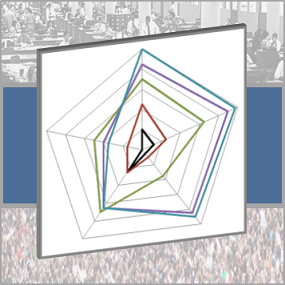

The Local Governance Institutions Comparative Assessment (LoGICA) Framework analyzes the local and intergovernmental systems, processes and institutions that contribute to effective local governance and localized service delivery performance:
LoGICA Framework (PDF; 1.56 MB)
LoGICA Score Card template (Excel; 62 KB)
The Local Governance Institutions Comparative Assessment (LoGICA) Framework is designed to assess and compare local governance systems in different countries based on five specific institutional dimensions:
- the assignment of functional responsibilities;
- the existence of local political space and effective local political systems;
- the degree of local control over local administration and local service delivery;
- local fiscal autonomy and local financial management; and
- participatory and responsive local service delivery mechanisms.
A more effective local governance system is achieved when each of these five institutional dimensions are effective, well-structured, and fit together well.
This Assessment Framework—issued in March 2015—has been developed as a contribution to the collective efforts of many stakeholders to assess and develop effective local governance institutions around the world, by providing a common pool of information for measurement and monitoring the performance of local governance institutions, and by providing a common platform for dialogue.



